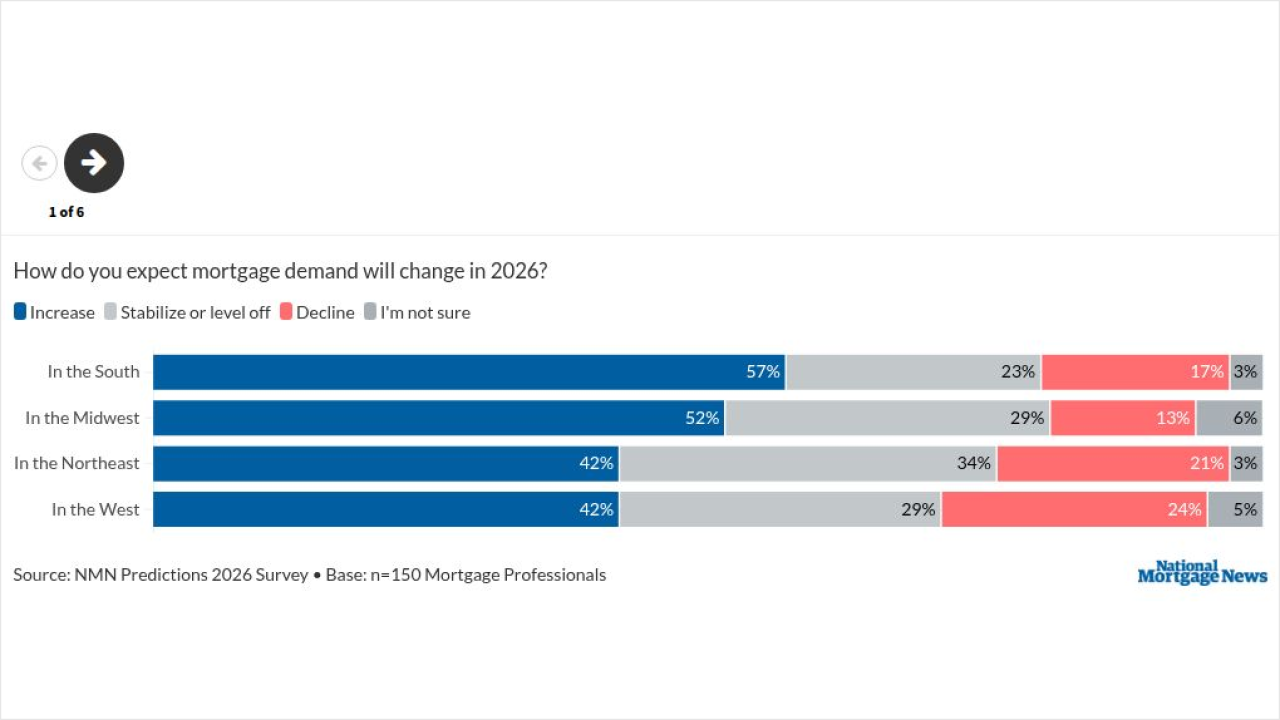HomeStreet Bank generated second quarter earnings that fell just short of matching its results in the prior fiscal period as it reduced single-family expenses and expanded other business lines.
The Seattle-based company earned $17.7 million during the fiscal period, down from $20 million in the first quarter and $29.2 million a year earlier. Despite adverse impacts to the single-family lending from higher rates, strong overall loan portfolio growth of 15% contributed to 4% growth in revenue over the prior quarter.
“Commercial real estate loan originations, primarily multifamily, are expected to be the principal driver of our near-term growth,” said Mark Mason, HomeStreet’s chairman, president and CEO, during the company’s earnings call.
Disruptions in the market, which allowed banks to offer more competitive funding costs, led to new customer relationships with borrowers who previously might have opted to sell their loans to government-sponsored enterprises
Nevertheless, the $0.94 in earnings per share the company generated fell below analyst estimates ranging from $0.96 or $0.98 on average to as high as $1.05. The company’s results were weighed down in part due to declines in the broader single-family market that were larger than expected. But HomeStreet managed to cut enough costs that the gain on sale margin for its single-family mortgage banking unit inched up to 2.84% from 2.73% the previous quarter.
Analysts believe HomeStreet’s diversified lending strategy may create some challenges given that borrowings are starting to outpace deposits, which is a broader issue
At HomeStreet, deposits fell to $6.18 million during the second quarter from $6.27 million the previous fiscal period.
“The main negative was on the deposit side as growth on both a period end and average basis was negative and below our forecasts,” Wedbush analysts David Chiverini, Peter Winter and Brian Violino said in a report on HomeStreet’s earnings published Tuesday.
The weakness in deposits could limit broader lending, they noted.
“This will likely lead to HMST needing to resort to additional borrowings and higher cost promotional deposits to fund its strong loan growth,” said the Wedbush analysts.
HomeStreet’s deposit cost at quarter’s end was 0.24%, up from 0.16% the previous fiscal period, but its overall loan portfolio grew 15% during the period. That drove its loan-to-deposit ratio to 110%, up from 94.5% the previous quarter.
Banks typically try to keep their ratio below 100% as amounts above that indicate their lending has exceeded the deposits available. HomeStreet executives said they plan to take steps to address the high ratio but said it could remain elevated in the near term as lending takes priority.
In addition to multifamily, the types of lending HomeStreet sees growth potential in include




